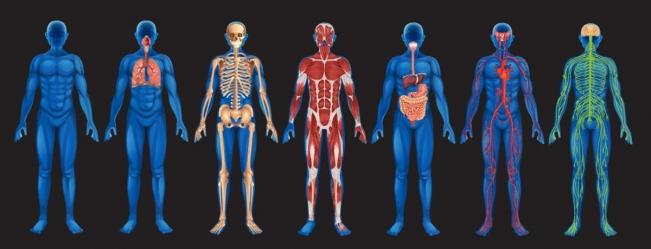There are a number of questions about the way the human body works to which the science has not been able to provide an adequate answer. The human body and many of its functions still remain a mystery that has confounded scientists and researchers for ages. Though there have been noteworthy and remarkable discoveries of human physiology and psychology in medical science, there are some phenomena that have baffled scientists for decades and still seem like a closed book. Further on we shall mention some of these occurrences.
The appendix:
The appendix is a vestigial organ whose removal does no harm to the normal functioning of the human body. It neither inflicts any damage nor disturbs our body anatomy. Basically these organs exist in the human body, but serve no purpose whatsoever. Some scientists state that appendix has a role in strengthening the immune system during fetal development. Unfortunately there is no conclusive evidence to support that theory. A number of experts believe that the tail-bone and the wisdom teeth are remnants of the over-sized jaw and tail which humans once exhibited, but are now redundant. In fact, the pain that is inflicted due to the issues with these organs can sometimes be excruciating and unbearable. The question which baffles scientist around the world is whether these vestigial organs are ancestral, evolutionary or rudimentary? Unfortunately we still do not have the answer to that question.
Microbes:
It is scientifically proven that for every cell in your body there are 10 microbes that reside inside you. Microbes and bacteria like E. coli, Bacteroides Fragilis and Clostridia are present in the nose, mouth, the gastrointestinal tract and on the skin. They have an important role in the metabolic processes that take place inside the human body. These microbes also protect you against disease-causing pathogens and increase the production of vitamins, thus keeping you fit and healthy. We are aware of the presence of these microbes, their types and certain roles that they play in our body. However, the reason why they are present in such staggering quantity and what exact role do they serve is still a mystery waiting to be unraveled.
Yawning:
Though there are a number of reasons behind a yawn, scientists are yet to pin down a definite answer to the cause of yawning. Though it helps increase the intake of oxygen, some scientists think it is a way to prevent the brain from warming up, to make us more alert and active. Commonly associated with fatigue, boredom, and drowsiness, some researchers think that yawning is inherited from our ancestors who yawned to show off their teeth to scare or restrain others. It may also be a way of communicating with others. There is no definite proof as yet about the validity of these theories but we sure know that it is contagious and can occur anytime.
Sleep:
We know that lack of sleep is bad for our health, but science has not been able to explain why we need to sleep in the first place. A theory suggests sleep is essential for the development of the brain and is a restorative function which gives the body a chance to rest and rebuild for the next day. However, if that is the case, then why are our brains active during sleep. While one is asleep the exact opposite happens and the brain is constantly alert and active. It is a mystery as to why this happens. What deepens the mystery is why we dream when we are asleep. There are many theories regarding the occurrence of dreams, some scientists say that dreams are a way of analyzing things. They reflect your feelings, fantasies, or desires and may help in forming memories. Whether it is for psychological significance or interpretation of signals, the exact cause still remains unclear.
These processes and occurrences were, are, and will always
remain an inevitable part of life. They are essential for our survival. We just hope that someday science will provide us with the answers and keys to unravel these mysteries of the human body that has puzzled not only scientists but every individual since time immemorial.



